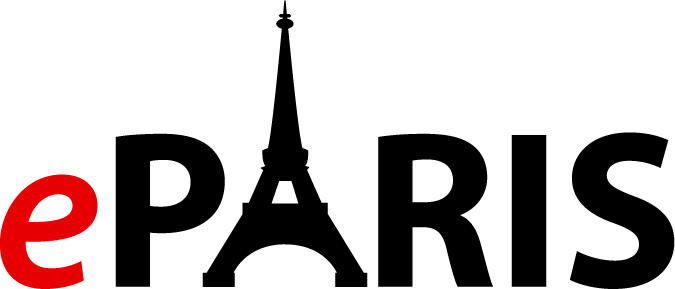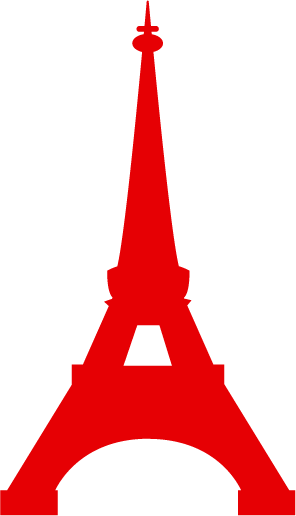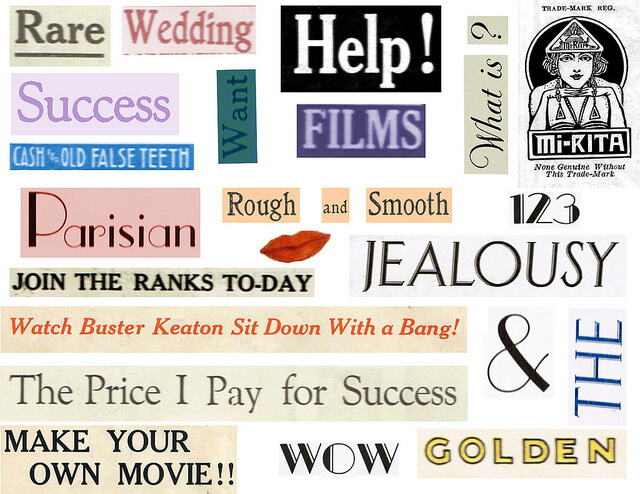Must know French phrases for Tourists
Would you like to receive a warm welcome when you travel to France? It is rumored that the French can be rude, but learning a few must know French phrases can help your vacation go more smoothly.
Misunderstandings can occur when tourists neglect customary behaviors and polite phrases that Parisians expect in their culture. Knowing a few key French words can make a huge difference in how you interact with locals, and make your experience much more pleasant. Not to mention, the locals will be much happier to assist with your questions. Additionally, knowing a few words and phrases will increase your ability to understand what they are saying as well.
Don’t worry; you don’t have to take a whole year of French to be able to communicate in France. If you have a little time before traveling, try to immerse yourself in French at home to better acquaint your ear to the language. With that in mind, we have come up with a list that will help immerse you in some of the must know Parisian phrases.
Helpful French Phrases
Parlez vous Anglais? — Do you speak English?
Parle lentment, s’il vous plait — Speak slowly please.
Je ne pas parle Francais — I don’t speak French.
Repetez, s’il vous plait — Repeat, please.
Je comprends — I understand.
Je ne comprends pas — I don’t understand.
Je sais — I know.
Je ne sais pas — I don’t know.
Je peux – I can.
Je ne peux pas — I can’t.
Common Phrase – “I would like”
Je voudrais — I would like.
Je voudrais is an essential phrase to remember. It’s a polite phrase for any request, and softens the tone instead of using a phrase like: Je veux — I want. (This sounds forceful.) Instead use polite phrases like:
Je voudrais une tasse du thé — I would like a cup of tea.
Je voudrais le menu — I would like the menu.
Je voudrais le carte des vins — I would like the wine menu.
Je voudrais une chambre — I would like a room.
Je voudrais un peu de chocolate — I would like a little chocolate.
French Etiquette
Bonjour. S’il vous plaî — Hello, please
This is a big one. Whenever you’re planning on asking anyone for anything, no matter what it is, always start with “Bonjour. S’il vous plaît…” The combination translates directly to “Hello, please”.
While to us saying “please” might seem like a given, “bonjour” is just as important in the French culture. Neglecting to greet people in France is a way to make the locals gruff in their responses. No matter how many mistakes you might make while speaking, the French will be more willing to help or make the effort to understand when you say hello and please.
The French are very polite when it comes to service; therefore remember to mind your manners! The French use merci and s’il vous plait often and it’s best to learn when and how to use these phrases.
S’il vous plait — Please.
Always say s’il vous plait after any request made. When in a restaurant or a place in which you ask for anything, end the sentence with s’il vous plait.
Merci — Thank you.
This is considered the second most important French word. Remember to always use please and thank you especially in service environments like cafes, restaurants, while shopping and hotels.
En anglais, s’il vous plait — In English, please.
Encore une fois, s’il vous plait — One more time, please.
De rien — You’re welcome.
Je suis desolé — I’m sorry.
Pourriez vous m’aider? — Could you help me?
Oui & Non — Yes & No
Yes and no can be very useful when attempting basic communication with a French person. Once they realize you don’t have a broad vocabulary to form complete sentences, they might ask you questions instead. Yes and no can always be useful in answering these questions to hopefully reach a helpful conclusion.
Où est…? — Where is…?
If you’re looking for something that you cannot locate, use this phrase to ask “Where is…” For example Où est le guichet? (Where is the ticket window?)
Travel Related Words and Phrases
Traveling internationally can be confusing and overwhelming alone but add not being able to read or understand signs or instructions. Learning some of these useful travel related phrases will save you time and reduce frustration
passeport — passport
valise — suitcase
une valise — suitcase
coffre — trunk
un sac à dos — backpack
un sac — bag
des bagages — baggage
un billet — ticket
une reservation — reservation
While traveling in a Paris, you may need to make or change your travel arrangements. Whether you are scheduling a train trip or a flight, the following words will assist you with the reservation and purchasing process.
aller-retour — round trip ticket
aller-simple — one-way ticket
siège — seat
gare — train station
train — train
vol — flight
aéroport — airport
Travel related verbs
When traveling in Paris it helps to know the right verbs to express what you want to do. Use the following travel-related verbs:
voyager — to travel
rester — to stay
voir — to see
réserver — to reserve
annuler — to cancel
arriver — to arrive
partir — to leave
chercher quelqu’un — to pick up someone
How to ask for and understand directions
When exploring a new city you will need to know how to ask for directions and understand what you’re told. First you need is to know how to ask for directions. Here are a few phrases to assist you:
Est-ce que je peux vous demander mon chemin? — Can I ask you for directions?
Pouvez-vous me dire où ça se trouve? — Can you tell me where this is?
When someone in Paris shows you where to go, they will often say Le/la voilà (Here/there it is) when you find the place.
These words can be used when asking for or receiving directions in Paris:
nord — north
sud — south
ouest — west
est — east
tournez à droite — turn right
tournez à gauche — turn left
tout droit — straight
à droite — on the right
à gauche — on the left
une carte — map
au coin de — at the corner of
centre — center
derrière — in back of
devant — in front of
la prochaine rue — the next street
là-bas — over there
le centre-ville — downtown
rue — street
à côté de — next to
How to Order Food
It is essential to understand how to order food in Paris. Eating at French restaurants and cafes is a lot of fun, especially if you know basic restaurant vocabulary.
The following phrases will assist in making your dining a smashing hit.
Je voudrais de l’eau — I would like some water
Servez-vous du jus d’orange? — Do you serve orange juice?
Quelle sorte de légumes avez-vous? —What kind of vegetables you have?
Quelle sorte de poissons avez-vous au menu? —What kind of fish is on the menu?
Quel est le plat du jour? —What is today’s special?
Je voudrais du pain, s’il vous plait —I would like some bread, please
To express that you’re hungry you would say J’ai faim or Je veux manger.
In Paris, as in most of the world, there are three main repas (meals):
petit déjeuner — breakfast
déjeuner — lunch
diner — dinner
Looking at a menu can be overwhelming as many menus in Paris will be in French with little to no English. Going armed with knowledge to a restaurant will make your meal more enjoyable. Here is a short list of some food items you may see on a menu to order.
banane — banana
crudités — raw vegetables
fraise — strawberry
fromage — cheese
fruits — fruit
glace — ice cream
légumes — vegetables
pain — bread
petits pois — peas
poisson — fish
poivre — pepper
pomme — apple
pommes de terre — potatoes
porc — pork
poulet — chicken
sel — salt
sucre — sugar
tomate — tomato
veau — veal
viande — meat
These adjectives are helpful to describe to your garcon / serveur (waiter/waitress) how you wish the food prepared.
chaud — warm; hot
petit — small; short
grand — big; tall; large
froid — cold
To express you are thirsty say J’ai soif. To order your drink, say je voudrais . . . (I would like), then add the name of the drink you want.
café — coffee
thé — tea
bière — beer
eau — water
vin — wine
After you’re exquisite meal is concluded you’ll need to know these words:
addition — check
pourboire — tip
billet — ticket
carte de crédit — credit card
Vocabulary for Shopping
Developing a vocabulary for shopping will assist you in gaining a new cultural experience when traveling. Whether you’re shopping for souvenirs, food, or clothes, you can use the right words and phrases to help you find just the right thing.
In Paris, it is customary to greet the store clerk with a polite Bonjour when entering a store. It’s considered rude not to do so. The following words can be used in a variety of shopping situations.
combien? — How much?
argent — money
caisse — the cash register
carte de crédit — credit card
cher — expensive
grand — big; tall; large
large — large
marchand — vendor
petit — small; short
porte–monnaie — wallet
sac — bag
The first step to a successful shopping expedition is to know where to shop. In Paris there are many open-air street markets (called marché) where you can buy many things from fruits and vegetables to antiques and collectibles. If you need to go to a specific type of store, the following terms can help.
boucherie — butcher shop
boulangerie — bakery
épicerie — grocery store; general store
pâtisserie — pastry shop
supermarché — supermarket
Shopping for clothing
The French are known for their sense of style and you may want to join in when traveling to Paris to pick up a chic new outfit. Clothing stores are typically called magasin and department stores are called grand magasin. These words will help you shop for clothing in Paris.
chapeau — hat
chemise — shirt
chemisier — blouse
costume de bains — bathing suit
cravate — tie
imperméable — raincoat
jean — jeans
jupe — skirt
manteau — coat
pantalon — slacks
pull — sweater
robe — dress
slip — underpants
sweat — sweatshirt
veste — jacket
baskets — sneakers
pointure — shoe size
bottes — boots
blanc — white
bleu — blue
jaune — yellow
marron — brown
noir — black
orange — orange
rouge — red
vert — green
France is very proud of its culture and its people appreciate all efforts made by visitors to partake in their culture. Arming yourself with a few of these phrases will help you fit in with the French and enrich your experience. Knowing a little French goes a long way. While many of the people working in high tourist traffic areas will know more English than the average person, they’re probably not at a fluent level. Speaking a little French will be appreciated by the people you speak to and will go a long way in your interactions in France.
While it’s nice to be able to ask all of your questions in French, if you really need to speak English, this is the key to unlock that possibility. Most French people do speak Basic English. However it is a courtesy, before diving into asking questions in English, to first ask if the person speaks a little English. You can either ask them in English or say, Bonjour. Parlez-vous anglais? Un peu? More than likely before you finish your question, the Parisian will know that you’re not a local and will try to assist you in English.
Good luck and happy traveling!
Photo by plaisanter~


